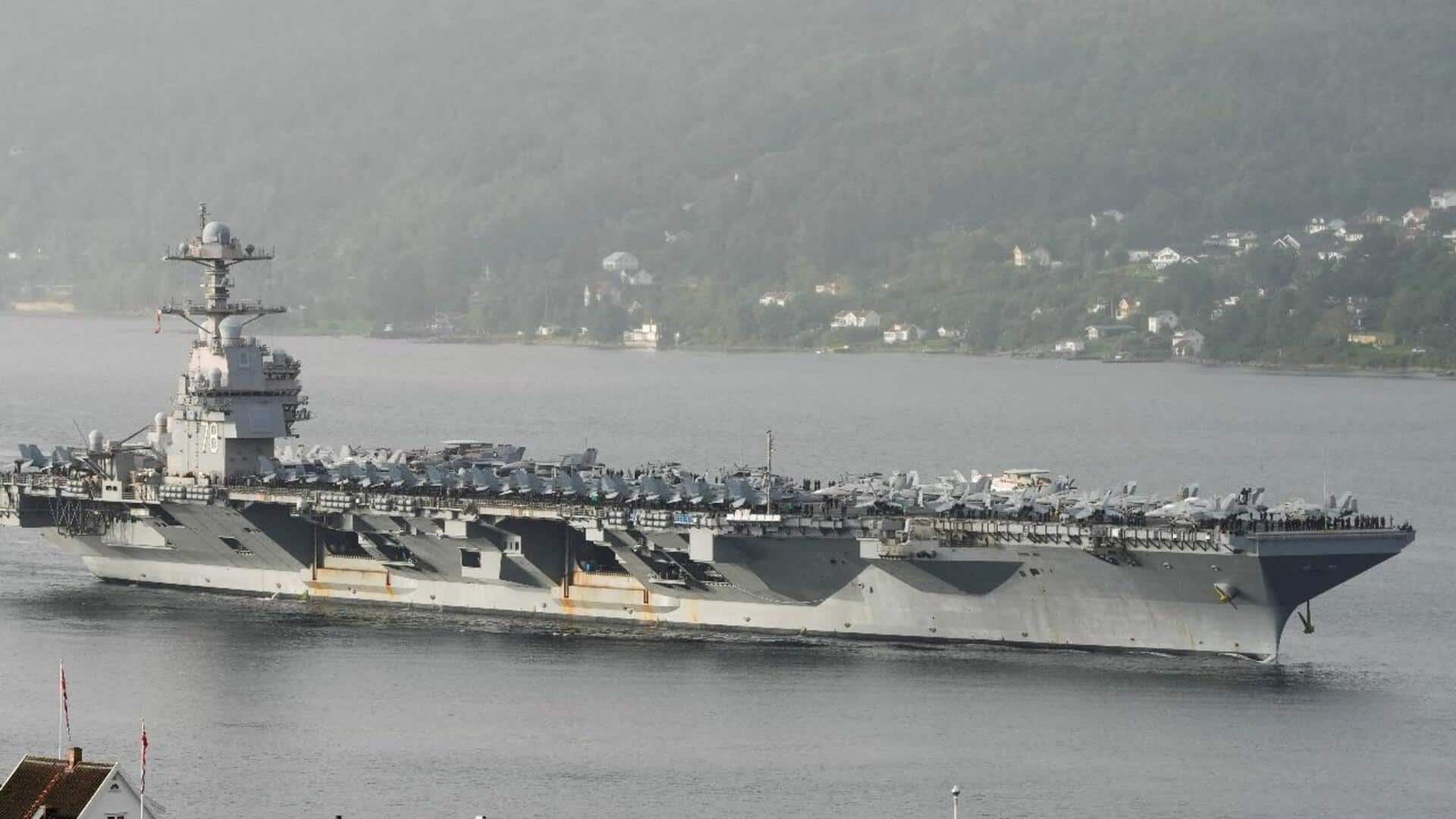
Pentagon's largest warship enters Latin American waters amid US-Venezuela tensions
What's the story
The United States Navy's USS Gerald R Ford, the world's largest aircraft carrier, has entered the area of responsibility of the US Southern Command in Latin America and the Caribbean. The deployment is part of a military buildup in response to tensions between the US and Venezuela. The carrier leads a strike group with dozens of aircraft and destroyer ships.
Countermeasures
Maduro orders massive military deployment
In response to the US naval presence, Venezuelan President Nicolas Maduro announced a "massive deployment" of land, sea, air, river, and missile forces. This includes civilian militia to counter what they see as a threat. The US carrier now joins other warships, a nuclear-powered submarine, and aircraft based in Puerto Rico, the largest US military presence in the region in decades.
Justification
Justifying military buildup as part of 'war on drugs'
US President Donald Trump has justified the military buildup as part of his "war on drugs" against traffickers allegedly smuggling narcotics through Caribbean and Pacific waters. This campaign has included airstrikes on boats, killing at least 76 people in South American waters since September. Sean Parnell, chief Pentagon spokesperson, said the arrival of USS Gerald R Ford will "bolster US capacity to detect, monitor, and disrupt illicit actors and activities" in the region.
Escalation
Venezuelan defense minister warns of US attack
Venezuelan Defense Minister Vladimir Padrino Lopez said military alert levels have been raised amid fears of a US attack. The country is preparing for guerrilla-style resistance or chaos in case of an air or ground attack. Venezuela's military includes decades-old Russian-made equipment, with plans to use small units for sabotage and other tactics if attacked.
Regional response
Latin American leaders call for political solution
At the Community of Latin American and Caribbean States (CELAC) summit in Colombia, a joint declaration by 58 out of 60 nations present rejected "the use or threat of use of force and any action not in accordance with international law." Brazil's President Luiz Inacio Lula da Silva emphasized that "We are a zone of peace" and called for a political resolution in Venezuela.